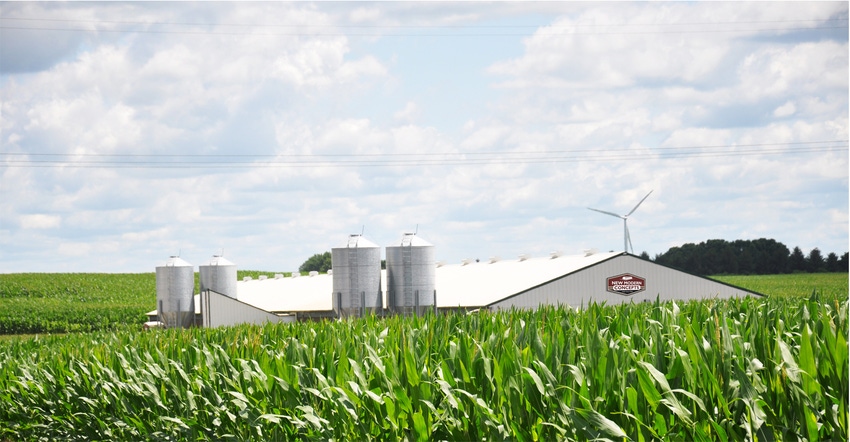June 21, 2018

As many of you are aware, Des Moines, as it has for many years, hosted the World Pork Expo in June. Among other features, the expo provides pork producers a daily opportunity to attend seminars related to issues facing the livestock industry. With that in mind, this month we’ll focus on livestock legal issues. Here are two of the major legal developments and ongoing court cases that may have an impact on the industry and producers.
Ag Production Facility Fraud law
On Oct. 10, 2017, the Animal Legal Defense Fund, People for the Ethical Treatment of Animals, Iowa Citizens for Community Improvement, Bailing Out Benji, and the Center for Food Safety joined in filing a lawsuit in U.S. District Court challenging the constitutionality of Iowa’s Agriculture Production Facility Fraud law passed by the Iowa Legislature in 2012.
That law established criminal misdemeanor penalties for anyone convicted of using false pretenses to obtain a job at or access to an agricultural operation.
In December, the Iowa attorney general responded by filing a motion to dismiss the lawsuit. The motion, supported by a 39-page brief, alleged that the groups challenging the law do not have legal standing to bring the lawsuit. The attorney general also argued that the lawsuit fails as a matter of law to state a claim for the groups’ allegations of violations of their First Amendment rights to free speech and their 14th Amendment equal protection rights.
The plaintiff groups filed a reply to the attorney general’s motion to dismiss the lawsuit. In summary, the plaintiffs argued that they alleged “sufficient injuries” for standing purposes, and they adequately alleged violations of the First and 14th Amendments. The defendants, responded, citing a similar case challenging Idaho’s Ag-Fraud statute (Animal Legal Defense fund v. Wasden). The defendants argued that the 9th Circuit Court of Appeals’ determination regarding the First Amendment in Wasden doesn’t apply in this case.
The court ruled that the groups challenging the law have stated a claim for violation of the First Amendment rights to free speech, but “the court does not determine whether [the Ag-Fraud Statute] violates the First Amendment, as that ultimate issue is not before the court on this motion.”
The court went on to dismiss the portion of the lawsuit alleging that the law violates the groups’ 14th Amendment Equal Protection rights ruling that “the text of [the law] contains no classification targeting animal welfare activists” and that the law addresses legitimate government objectives such as preventing trespass and fraud in employment.
Thus far, the case will proceed to a trial on the First Amendment issues. A non-jury trial is set for Aug. 19, 2019.
Manure as an ‘air emission’
On Dec. 28, four northeast Iowa residents filed a Petition for a Declaratory Order to the Iowa Department of Natural Resources. The petitioners asked for “a Declaratory Order that air emissions from hog confinement buildings contain manure that must be retained between periods of manure disposal.”
DNR didn’t respond to the petition. Under Iowa law, if an agency doesn’t respond, the petition is deemed to have been denied.
On May 22, a lawsuit was filed in Polk County District Court by the four residents asking the court to review DNR’s denial of their petition. The petitioners are asking the court to rule that the Iowa water quality law requiring total containment of all manure from a confinement operation — a requirement which is above and beyond the federal Clean Water Act —also applies to air emissions from a confinement feeding operation.
On June 12, Iowa DNR through the Iowa Attorney General’s office filed a motion to dismiss the petitioners’ claims, arguing that petitioners lack standing and failed to state a claim upon which legal relief can be granted.
Further, the attorney general argued that the court does not have the “original authority to declare the rights of parties or the applicability of any statute or rule.”
In other words, the attorney general is asking the court to dismiss the petition on legal procedural grounds, in essence arguing there is no legal basis for the court to get to the substance of the petitioners’ lawsuit. If the court does not grant the motion to dismiss and the lawsuit proceeds, the attorney general will likely argue that the petitioners are taking Iowa’s “total manure containment” law out of context, in that by its terms it applies exclusively to water-quality-related requirements and not air emissions.
As always, we will continue to monitor these cases impacting the livestock industry, and update readers on new developments and the ultimate outcome of the litigation. Special thanks for the assistance of Eldon McAfee, my co-worker and attorney with Brick Gentry P.C., in the writing of this column. Eldon’s experience in legal issues affecting livestock producers speaks for itself.
Herbold-Swalwell is an attorney with Brick-Gentry in Des Moines.
About the Author(s)
You May Also Like






